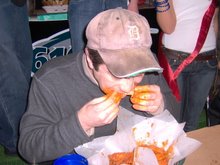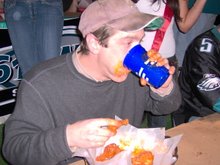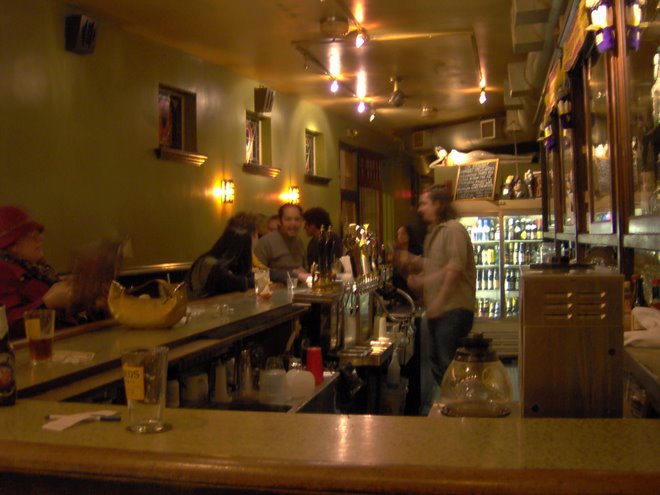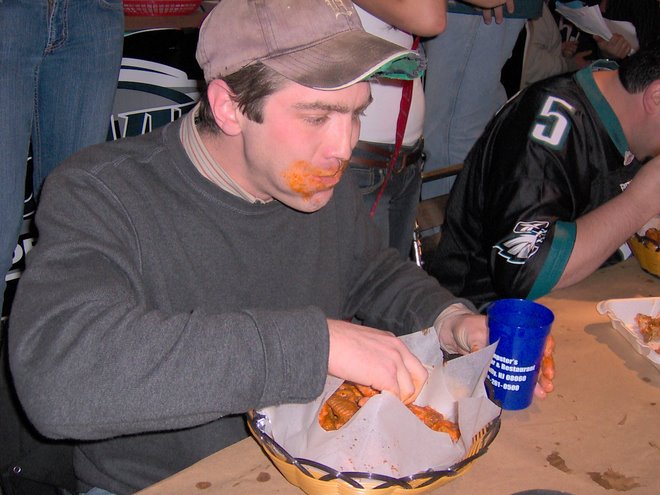In the mid-1970s, Great Britain experienced a certain cultural upheaval among the nation’s youth which, when examined later, stands apart from the other various youth counterculture movements in close proximity to that era. Aggressive music, torn and disheveled clothing, wildly colored hairstyles, and the appropriation and reinterpretation of symbolic imagery (such as the Nazi swastika) characterized the outward ‘look’ of this movement; all were integral to the anti-establishment tone of the movement.
The movement, which became known as “punk,” was seen as ‘offensive’ to most Britons; resultantly, the press, police, politicians and even ordinary members of society widely vilified and sought to persecute members of this movement. In and of itself, the persecution of a youth counterculture movement may not seem unremarkable to the casual observer. But in the context of post-World War II British society, it can be seen as extraordinary, given the foundations of freedom for which Briton themselves had fought only thirty years earlier: as late as the 1960s, Britons considered themselves to be members of a ‘Permissive Society,’ and, while condemning certain aspects of other youth countercultures (drug use or the perception of rock and roll as Americanization), generally allowed the various youth counterculture movements the freedom to run their inevitable courses.
The causes of the highly conservative reaction to punk by the mainstream society of England in the mid-1970s are varied and complex; however, it may be that many Britons, including the upper echelons of government, the press, and even ordinary members of the middle class, viewed punks as a genuine threat to their own existence: as such, punks became an enemy to the state and mainstream society—and needed to be silenced, if not destroyed.
To understand the backlash that punk generated, a working definition of what precisely ‘punk’ was must first be established, and some of the generalities of life in England during this era must first be examined.
The term ‘punk’ is a nebulous concept—the definition of ‘punk’ can change from person to person, and often changes in meaning to an individual over time. However, it is necessary to begin with some kind of working definition in order to proceed. At a basic level, ‘punk’ was a subculture differentiated by being part youth rebellion, part artistic statement. It peaked as a movement during the period of 1976 to1979, most noticeably in England and the United States.
It had its primary manifestation in music, not only among the disaffected rock and roll bands like the Sex Pistols, Buzzcoks and the Clash that made the music, but also their fans. Secondary manifestations of punk were fashion and the visual arts. Philosophically, punk stood for identifiable attitudes: an emphasis on nihilism, a consciousness of class-based politics, a belief in spontaneity, and an ethic of ‘do it yourself.’ Finally, because ‘punk’ also entails political and class consciousness, it can only have begun in one place: England in the mid-1970s.
This is not to rule out the American bands such as the Ramones, the New York Dolls, the Velvet Underground and Iggy and the Stooges: punk could not have been born without their influence. However, these bands used generally used outrage for art’s sake, and had little or no political agenda. Punk therefore contained not only a musical sound, but also an injection of political philosophy. In order to narrow the scope further, it will become necessary to examine the trajectory of one of these bands, arguably the most influential and perhaps the definitive punk band: the Sex Pistols.
[A side note that did not appear in the original publication of this paper:
First, I'd like to thank Dr. Regina Gramer for helping me work all of this out. Nice lady. Asked good questions. Cute kid, too. Doc, sorry about cutting class so much, but those other people in W387 drove me mad. They still thought that there was some kind of JFK conspiracy! No. Oswald acted alone. Try to explain it and get shouted down. Whatever. Anyway, thanks again for writing that recommendation to the LSAT board even if I didn't get in. Things have worked out for the best.
Second: There was much debate at Club 700 about what constitutes "punk," "post-punk," "New Wave," et cetera. In my heart of hearts I know these two things: (a) those three terms and any others like them are representative of the same ideas and movement. Just because ian Curtis died while in Joy Division doesn't make New Order any less of "some kind of a punk band" as Bernie once said, and (b) besides, it is like the blues: it will never die, it does not matter what age, creed, gender or color you are. If you have been oppressed, if the kids at school are teasing you, if some one ever took your lunch money,if you've been spit in the face, and you are pissed off about these facts, do yourself this favor:
Convince your parents to buy you a guitar and the biggest amp they can afford, or buy one of each yourself, like I did. Actually my brother gave me the amp, but whatever, I'd of bought one need be. Then, put it in the basement, or your better, your bedroom. Then, put in some foam earplugs. Then, plug it all in, unless it is battery-powered, in which case, first charge the battery. Then, turn that bitch up to eleven. Then fucking wail on it. Don't even bother tuning it up. Or, if you decide to tune it, feel free to experiment like Thurston Moore and the rest of Sonic Youth with your tuning. It'll sound best if you do your own tuning anyway. Tune it to what you feel inside, your heart. Don't bother taking any lessons first either, and that's really the whole point: make your sound. Sound good to you? Good. Rock.
Believe me: at this point you are not playing that guitar, it is playing you. Enjoy. Disturb the neighbors, frequently. And don't worry about it when your parents tell you to TURN IT DOWN, DAMMIT! Trust me, they probably deserve the any and all of the punishment you are dishing out . And that they have it coming. They have committed many crimes to you which they are about to atone for. Not their fault, not like their parents were a road map or the government gave them a pamphlet, either, as Kineson once said. Rock on. Congratulations, you are now a punk rocker. Go get 'em!
What I'm saying is, most if not all musical forms transcend time and space, and the only poseurs in punk are those who have not experienced any of the pain or opression or whatever aforementioned above, yet still call themselves punks. To them it's just about the fashion. Dorks.
Back to the matter at hand:]
The changes England experienced during the early 1970s were unpleasant to the youth of the nation, to say the least: by 1975, England was experiencing full-blown recession. People faulted everyone but themselves for the poor condition of the economy: the government, immigrants, OPEC, and striking union members all shared in the blame. Public spending had risen by 45% under both the conservative leadership of Prime Minister Heath and the Labour leadership of P.M. Wilson, while the gross national product shrank, due to low-priced foreign goods and a lack of production in England. Those graduating from primary school were the most vulnerable to the declining economy. In late 1975, Healy introduced a domestic spending package that would cut three billion pounds in social welfare expenditures. Meanwhile, the United States, mired in its own economic quandary, called in the loans it had provided to England during World War II, increasing the national debt by another three billion pounds.
Generating revenue became the focal point of any enterprise in England, and the music industry was no exception. The Beatles, Rolling Stones, and The Who were all renowned for their ability to sell hundreds of thousands of records overseas, producing vast amounts of capital from almost nothing: the cost of studio time was made irrelevant by these artists creativity and marketability. By the mid-1970s, six multinational corporations dominated nearly three-quarters of the English music industry. These corporations favored progressive rock: costly, multi-tracked songs, which, in addition to the guitar / bass / drums / singer formula that had defined rock since its inception, often included synthesizers, scores of background singers, more obscure instruments like harpsichords, and even entire orchestras. ‘Prog’ rock was defined by bands like Yes, Pink Floyd, The Moody Blues and Abba. These bands were also expensive to market: promoters would spend huge sums, hoping that the bands would be accepted by the masses. Rock and roll had ceased to be counter-cultural: it had become the mainstream, a bloated monster that celebrated economic gain and excessive living.
This monster was generating a false consciousness: ostensibly, it was rebellious music; in reality, it had become yet another strata in the class divisions existing within English society. To the teenagers of the early 1970s, it was simply boring.
Malcolm McLaren, manager of the Sex Pistols, and Jamie Reid, their album artist, were all at least admirers, if not members of the Situationist International movement during the nineteen sixties. The Situationists (See: Paris, 1969 I think) were the modern intellectual descendants of the nineteenth century anarchists. The Situationists ideological basis was that the original working class movement had been trodden by the bourgeoisie in the West and by the Bolsheviks in the East. Working class organizations, such as trade unions and leftist political parties had sold out to world capitalism; furthermore, capitalism could now appropriate even the most radical ideas and return them safely, as risk-free ideologies, to be used against the working class, which they were originally supposed to represent. The Situationists did not want to work with the existing system: instead, the sought to destroy it, after which they would create a world composed of small, independent states: “an alternative society, neither capitalist nor bureaucratic-socialistic: a society based on voluntary co-operation among men and women, working and living in small self-governing communities.”
McLaren formed the Sex Pistols in late 1975, by introducing the members to one another in his sadomasochism-themed clothing boutique, Sex. Initially, he sought to use the group as a promotional tool for his bondage gear. What he soon discovered was that the group had a wide appeal to the disenfranchised youth of the nation. And that he could capitalize on that appeal.
The members of the Sex Pistols were not necessarily politically aware when McLaren introduced them to one another. They were, however, aware of their own economic plight and lack of opportunity. With the exception of original bassist Glen Matlock, the members of the group were lower class, and had been raised in abject poverty. Singer John Lydon (also known as Johnny Rotten) had been born into an Irish immigrant family living in the slums of Finsbury Park, London. “The whole family [father, mother and three brothers] shared the same bedroom and a kitchen. That’s all it was. No bathroom. Outside toilet. A tramp lived in the front room, which used to be a store front.”
Lydon, dissatisfied with his own socio-economic-political situation, reflected a similar philosophy with the lyrics to “Anarchy in the U.K.” In it, he sings, “I am an antichrist / I am an anarchist / Don't know what I want /But I know how to get it / I wanna destroy / the passerby /'Cause I wanna be Anarchy / Anarchy for the U.K. / It's coming sometime and maybe / I give a wrong time stop a traffic line / Your future dream is a shopping scheme.” Lydon, who claims to have been apolitical at the time, provided the conceptual direction of the group, calculated to be as confrontational, caustic and threatening as possible. Lydon was not interested in British politics because they had nothing to offer—thus the need for a new type of society.
McLaren, realizing that the promotion of the song and the philosophy was key to the success of both, booked the band on London Weekend Television's Today program with Bill Grundy, which ended in a stream of four-letter abuse of the host that brought the group banner headlines in the following morning's tabloid press:
Grundy: They are “punk rockers.” The new craze, they tell me. Their heroes? Not the nice, clean Rolling Stones... You see they are as drunk as I am... They are clean by comparison. They're a group called The Sex Pistols, and I am surrounded by all of them...
Jones: In action!
Grundy: Just let us see The Sex Pistols in action. Come on kids...I am told that that group have received forty thousand pounds from a record company. Doesn't that seem to be slightly opposed to their anti-materialistic view of life?
Matlock: No, the more the merrier.
Grundy: Really?
Matlock: Oh yeah.
Grundy: Well tell me more then.
Jones: We've fuckin' spent it, ain't we?
Grundy: I don't know, have you?
Matlock: Yeah, it's all gone.
Grundy: Really?
Jones: Down the boozer.
Under pressure from local authorities, promoters in the cities of northern England canceled most of the group’s scheduled tour. Furthermore, the single was banned from many shops due to the lyrical content. In spite of this censorship, the group had gained enough attention from the interview that the single eventually reached #36 on the New Musical Express charts. Yet the negative publicity was too much for the group’s label, EMI, to handle: the group was dropped shortly after the interview.
Besides the tabloid press and bans from record stores, the bands were also reviled by the more legitimate press, and members of political institutions. Ronald Butt, writing for the Times of London, dismissed the group as “the grubby face of mass promotion;” Member of Parliament Marcus Lipton stated that “if punk rock is going to be used to destroy Britain’s institutions, then it ought to be destroyed first.” Bernard Brooke Partridge, a member of the Greater London Council, delivered this diatribe:
“My personal view on punk is that it’s nauseating, disgusting, degrading, ghastly, sleazy, prurient, voyeuristic and generally nauseating. I think that just covers it as far as I’m concerned. I think most of these groups would be vastly improved by death. The worst of these punk rock groups I suppose currently are the Sex Pistols; they are unbelievably nauseating. They are the antithesis of humankind. I would like to see somebody dig a very, very large exceedingly deep hole and drop the whole bloody lot down it. You know, I think the whole world would be improved by their utter non-existence.”
Lipton and Partridge nearly got their wishes. In the next few months, the Sex Pistols released their next single, “God Save the Queen.” In it, Lydon sang, “God save the Queen / The fascist regime, / They made you a moron / A potential H-bomb. / God save the Queen / She ain't no human being. / There is no future / in England's dreaming /Don't be told what you wanted / Don't be told what you need. / There's no future / There's no future / There's no future for you.” The release of the single coincided with the jubilee anniversary of Queen Elizabeth—outraging ordinary British citizens, most of whom adored the monarch, in spite of the lack of prosperity in their own lives and the millions of pounds paid annually to the royal family.
The repercussions were swift. The BBC banned the record from the airwaves; when the record debuted at number one on the popular music charts, a censor’s black line occupied the space where the song’s title should have been. At Virgin Records, the bands new label, press officer Al Clarke said, “There is a unanimity of bans. Every conceivable outlet for the disk is now closed for us and our only chance is to push it via press advertising and a poster campaign, but quite a few posters have been ripped down by supporters of the royalty.” Finally, Lydon and drummer Paul Cook, as well as members of four other bands, were attacked and beaten in the street by bands of hooligans: suddenly, the political had become very personal.
During this time, a split occurred within the band. Glen Matlock was replaced by John Ritchie (also known as Sid Vicious). McLaren claimed that Matlock had been fired for liking the Beatles. In reality, Matlock left the band because his own upbringing did not concur with the ideology of Lydon. Matlock would go on to form his own group, the Rich Kids.
Later that year the group released an album called “Never Mind the Bollocks-- Here’s the Sex Pistols.” As with all of their other material, it was banned from radio airplay. Nevertheless, it was a commercial success and was number one in the charts within four weeks of its release. The media refused to carry ads for the album. These ads were designed specifically to give no offense, but were barred from commercial radio and television. According to Virgin, the ban had been imposed by the Independent Broadcasting authority (IBA) after initially being approved. A spokesman for the IBA confirmed that no technical objection had been found to the ads, but felt that advertising the album itself might give offense. The IBA advised both the Independent Radio Contractors and the Independent Television Companies Association to consider carefully whether they wanted to advertise the album. Unsurprisingly, both decided they didn’t want to carry any ads for the record.
Some of the record stores that did carry the album came under attack. Several stores were charged with indecent display. The offending word was “bollocks.” However, in the first case to come to trial, an English professor defined the word as “nonsense,” and the case was dismissed.
Yet, the fact that there was a legal case at all shows how acute the reaction to punk by government authorities had become. Primarily, this reaction was rooted in the threat which punk, like all revolutionary movements prior to it posed: an attack on those in power by those without it, with the presupposition that those without power intend to supplant those with it. The Sex Pistols, therefore, had become the cultural offspring of Marx, Lenin, and Situationism.
Nonetheless, it remains that prior to the evolution of punk, British society had not reacted to a subculture so strongly as they did to punk. Certainly, members of other bands had been arrested in the past. But these musicians had been allowed the freedom to create their art without interference from political authority. Furthermore, although these musicians had widely known and publicized political opinions, the politics rarely, if ever, entered directly into their music. Punk was a direct attack on political authority and control, set in a time when the powers-that-be had, at best, a tenuous grip on that authority. Therefore, the perpetuation of those people and systems that depended directly on that power used it, for their own self-preservation.
Ultimately, these fears proved to be unfounded. The Sex Pistols fell apart from their own accord: during their first and only tour of the United States, Ritchie became growingly addicted to heroin. Controversy continued to follow the band wherever they played. At the Longhorn Ballroom in Texas, Ritchie and members of the audience traded insults, them blows. In the ensuing fracas, Ritchie hit an innocent bystander with his bass while attempting to ward off an attacker. As the tour progressed, the members of the group became estranged, to the degree that Lydon and Ritchie refused to ride the same bus as drummer Paul Cook and guitarist Steve Jones.
Yet they played their last show, at promoter Bill Grahm’s Winterland Auditorium in San Francisco in January of 1978, with the same vitality and energy that they had exhibited from the beginning. Without a laser-light show, a proper sound engineer, or even working monitors onstage, the Sex Pistols did what they did best: shock their audience into the understanding that they were witnessing the beginning of the end of the western cultural tradition. There is a point during the show, which can be heard on ‘The Great Rock N’ Roll Swindle” LP: the band is performing “Belsen Was A Gas,” with Lydon singing the lyrics: “Kill a man/ Be someone / Kill someone / Kill yourself.” The song ends abruptly; there is a moment of stunned silence, then spontaneous cheers. The audience has succumbed and accepted as fact Lydon’s vision of the past as equaling the present: vis-à-vis those forces which seek to maintain and control society, to coerce and control the individual, there lay only two choices: compliance or self-destruction.
In the end, the Sex pistols chose self-destruction: the group disbanded after the San Francisco show. Ritchie would die of a heroin overdose less than a year later. Lydon went on to front his own group, Public Image Ltd., while Steve Jones and Paul Cook toiled in relative obscurity, until the band reformed for its self-parodying, appropriately titled 1996 Filthy Lucre Tour: as the Situationists had predicted, the band itself had eventually transitioned themselves from countercultural iconoclasts to marketable icons; as Lydon once said onstage, “Ever get the feeling you’ve been cheated?”
Perhaps, but perhaps not: the ultimate legacy of the Sex Pistols lies not in their political underachievement. Instead, it can be heard and seen in the art that followed them. Whether it is the anti-establishment tone of the punks bands that followed them, or the more recent bands Rage Against The Machine and Public Enemy; the non-linear insistence in the filmmaking of Quentin Tarantino and David Lynch, or the cyberpunk storytelling of William Gibson, the Sex Pistols taught the countless artists in the three decades that have passed since their formation one simple rule:
Express yourself, and fear no one.
Thursday, January 25, 2007
Subscribe to:
Post Comments (Atom)






No comments:
Post a Comment